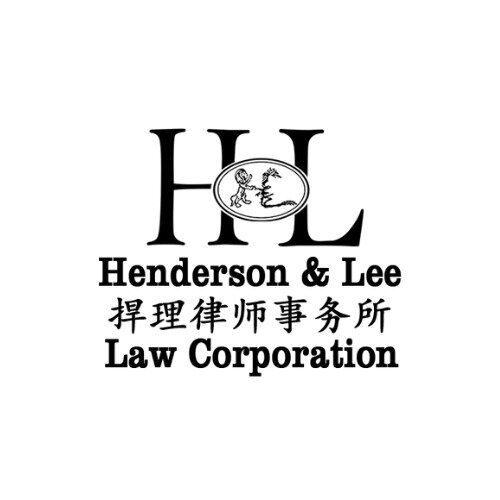Best Merger & Acquisition Lawyers in Burnaby
Share your needs with us, get contacted by law firms.
Free. Takes 2 min.
List of the best lawyers in Burnaby, Canada
About Merger & Acquisition Law in Burnaby, Canada
Merger and Acquisition (M&A) law falls under the broader umbrella of corporate law. It mainly deals with the purchase, sale, or consolidation of companies or their assets. Canada has a very robust M&A market, and Burnaby, being one of the prominent commercial areas in British Columbia, is no exception.
Canadian laws for M&A are designed in a manner conducive to commerce, upliftment of competition, and safeguards for minority shareholders' rights. There is a detailed process to be adhered to, including due diligence, negotiations, preparing agreements, securing regulatory approvals, and implementation of the deal. The law applicable to M&A in Burnaby is complex and wide-ranging, involving provincial, federal, and in some cases, international legislations too.
Why You May Need a Lawyer
Undertaking a merger or acquisition involves navigating through extensive laws and regulations. It is highly advisable to seek professional legal advice for such transactions. Lawyers specialized in this field can guide you through the commercial, legal, and sometimes even cultural nuances of the deal.
You may require legal help to conduct thorough due diligence, negotiate terms, structure the transaction efficiently, draft the comprehensive agreements, and get numerous regulatory approvals. More specifically, you also need legal advice to ensure compliance with securities laws, tax laws, competition law, foreign investment laws, employment laws, and more, while finalizing the M&A deal.
Local Laws Overview
In Burnaby, the same as anywhere else in Canada, M&A transactions are governed by several laws and regulations. Key among them are the Canada Business Corporations Act, the securities laws of British Columbia, the Competition Act, and the Investment Canada Act. If the target company also carries on business in other provinces, those provinces' corporate and securities laws may also play a role.
These laws essentially protect the interests of minority shareholders, regulate the conduct of directors and officers, and ensure that the transaction does not lead to an undue restraint of competition. Regulatory approvals might be required from bodies like the Competition Bureau and the federal Minister of Innovation, Science and Economic Development.
Frequently Asked Questions
What is due diligence?
Due diligence is an extensive scrutiny process undertaken before the M&A deal, to ascertain the viability and risks associated with the target company, financially, legally, as well as operationally.
What is a merger?
A merger is the consolidation of two or more companies into a single entity, typically by offering the stockholders of the target company securities in the acquiring company, in exchange for the surrender of their stock.
What is an acquisition?
An acquisition occurs when a company takes over another company and becomes the new owner. The acquired company ceases to exist legally but its operations continue under the acquiring company.
Is regulatory approval required for all M&A transactions?
Not all M&A transactions require regulatory approval. However, larger transactions may need approval from the Competition Bureau and potentially under the Investment Canada Act too. Any transaction involving publicly held companies is subjected to various securities regulations.
What does 'material adverse change' clause imply?
'Material adverse change' clauses are often included in M&A agreements allowing a party to walk away from the deal if there is a significant detrimental change in the target company's business, financial position, or prospects.
What is a 'Hostile Takeover'?
A 'Hostile Takeover' is an acquisition where the acquiring company does not have the agreement of the target company's board of directors.
Who bears the costs of the M&A transaction?
The costs of the M&A transaction are generally a matter of negotiation, but they typically fall on the purchasing party.
How long does the M&A transaction process usually take?
The duration can range from a few months to a year or more, depending on the complexities involved, including due diligence, negotiations, preparing the agreements, obtaining regulatory approvals, and so on.
Can a minority shareholder block the M&A process?
Under certain circumstances, minority shareholders can indeed block or affect the M&A process. Especially if they can prove the transaction would unfairly disregard or affect their interests.
Can an M&A transaction be reversed?
Once completed, an M&A transaction is usually difficult to reverse. However, in exceptional cases, such as fraud or misrepresentation, or where a essential condition is not fulfilled, the transaction can be unwound.
Additional Resources
Helpful resources for those thinking about M&A in Burnaby include the Canadian legal guide on M&A published by the International Comparative Legal Guides (ICLG), and various publications available on the websites of the Canadian Bar Association (BC Branch) and British Columbia Securities Commission.
Next Steps
If you need legal assistance in an M&A matter, the best first step is to find a lawyer who specializes in corporate and M&A law. Prepare a list of crucial questions ahead of your meeting, compile documents related to your case, and be ready for an open discussion about your requirements and the potential costs. Remember, early advice can often prevent costly mistakes as the M&A process unfolds.
Lawzana helps you find the best lawyers and law firms in Burnaby through a curated and pre-screened list of qualified legal professionals. Our platform offers rankings and detailed profiles of attorneys and law firms, allowing you to compare based on practice areas, including Merger & Acquisition, experience, and client feedback.
Each profile includes a description of the firm's areas of practice, client reviews, team members and partners, year of establishment, spoken languages, office locations, contact information, social media presence, and any published articles or resources. Most firms on our platform speak English and are experienced in both local and international legal matters.
Get a quote from top-rated law firms in Burnaby, Canada — quickly, securely, and without unnecessary hassle.
Disclaimer:
The information provided on this page is for general informational purposes only and does not constitute legal advice. While we strive to ensure the accuracy and relevance of the content, legal information may change over time, and interpretations of the law can vary. You should always consult with a qualified legal professional for advice specific to your situation.
We disclaim all liability for actions taken or not taken based on the content of this page. If you believe any information is incorrect or outdated, please contact us, and we will review and update it where appropriate.









